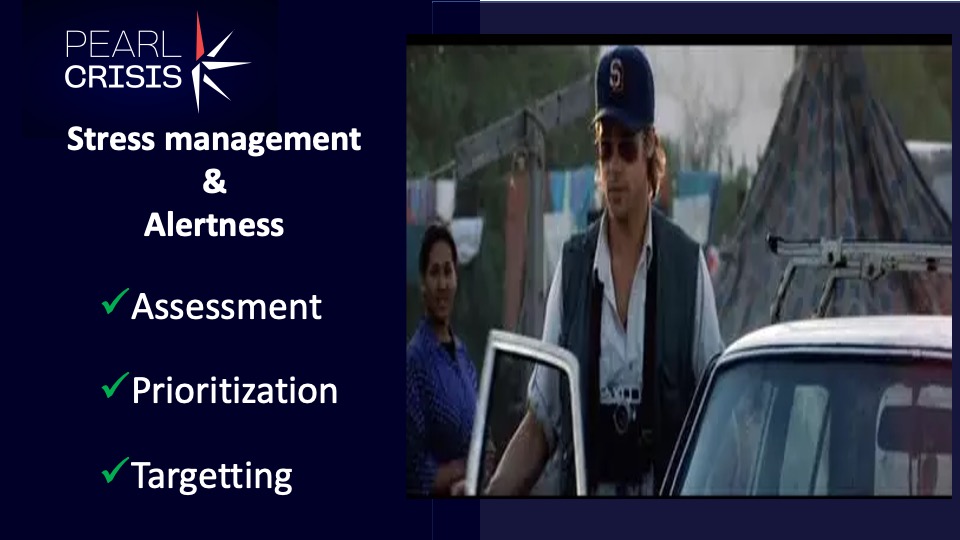Stress management…The example of an operational agent
Compartmentalize to manage stress
I don’t handle an interview the same way if my train is late, or if I had an argument on the way to the office, or if I just came out of a heated meeting with my teams.
The list of situations is too long, but you get the idea.

Who doesn’t know the tunnel effect? 😵💫
🤔When an operative goes to an interview with a source, he or she goes through an airlock of sorts to ensure safety.
He or she must go from a state of stressful hyper-vigilance allowing him or her to ensure physical safety to a state of open-mindedness necessary for the interview.
⚙️Ces 2 states are not compatible at the same time. They require a change, a transition. It is therefore necessary to have a certain mental flexibility that will allow you to perform well in both situations.
➡️Cet The state of hyper vigilance necessary in the first phase is similar to the tunnel effect. The attention is fixed on a certain number of elements and it is impossible to do other tasks at this moment.
➡️L The attention required for an active listening interview is very different and does not allow for the same level of concern for the environment.
So these 2 tasks need to be combined and there are a few “tricks” to maximize the chances of success:
👉Prepare the “mission” and identify the sequences
👉Identify the mental state you will have to adopt for these different phases
👉Visualize the course of the mission like a fighter pilot preparing his flight
👉Anticipate the non-conforming situations and the adapted reactions
👉Knowing one’s faults and strengths, to anticipate one’s own reactions
👉Connecting with one’s senses and distinguishing prejudice from intuition,
👉Name emotions: one’s own and those of others
….. We could go on.
But now think about how many situations in a day or a week where this flexibility can be necessary: the interview, we said it but the first day of a new job too when all the reference points change, when you land in a new situation as in a new country…fatigue, even exhaustion comes faster than usual.
💡It is our brain that gets tired…
We then lose our attention span. We more easily go on “autopilot”, that is, we rely more and more on automatic patterns and models, cognitive biases that allow us to process information automatically but in a way that can be unsatisfactory depending on the situation.
The ability to compartmentalize, to prepare, to identify phases and self-awareness which therefore goes through:
👉the evaluation
👉 prioritization
👉 the targeting of objectives
allowing to improve the performance in each phase and to delay exhaustion.

